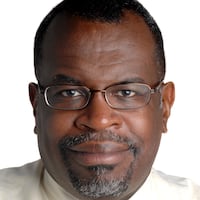With many new leaders in place, state elected officials have settled in to work.
The resumption of legislative activity at the Gold Dome marks a transition of sorts – a pivot away from campaign season and toward the often-mundane work of lawmaking.
That’s a refreshing change in a real sense, given the incessant, often sharp-elbowed barrages that pass for much of civic debate these days.
As the Georgia General Assembly moves through its 40-day session, we’d urge lawmakers as we have before to keep the state’s motto of Wisdom, Justice and Moderation top of mind. It remains good advice.
On today’s page, we’ve asked the leaders of two prominent Georgia think tanks to offer their counsel on what the Georgia Legislature should focus on this year. The Georgia Budget and Policy Institute tends to offer advice from a center-left viewpoint, while the Georgia Public Policy Foundation approaches issues from a center-right perspective.
As expected in their columns today, the two groups’ prescriptions for Georgia’s challenges differ. What’s intriguing is that both entities see similar issues in need of addressing. That’s encouraging, we believe, because it indicates some commonality around just what needs improvement. Hopefully, lawmakers feel similarly.
Health care in this state ranks high on the to-do list, all seem to agree. Rural community hospitals still struggle in too many places. That ailment afflicts both people and local economies. Growth and jobs are less likely to flow toward places with inadequate health care networks.
Health care institutions are affected, for sure, but far too many Georgians also lack even basic health care coverage. With a conservative population and legislature in recent years, Georgia’s signing on to the Affordable Care Act’s Medicaid expansion seemed a political third rail.
That said, Obamacare has survived court challenges, repeal talk and remains the law of the land.
Given that resiliency, Georgia lawmakers would do well to resume consideration of ways to provide coverage to more of Georgia’s uninsured, whose ranks include many of the working poor. The state has signaled interest in seeking a waiver of Medicaid requirements to pursue some sort of health insurance expansion for the needy. Other, equally conservative Southern states have done so, and seen their numbers of uninsured people decline as a result.
Georgia would do well to consider such an option. It’s encouraging that new Gov. Brian Kemp has indicated interest in exploring a Medicaid waiver. He and the Legislature should quickly begin exploring such an initiative.
Education also remains readily on the lips of the state’s politicians. That’s appropriate, given the importance of sound schooling to Georgia’s success and prosperity.
Gov. Kemp has proposed pay raises for educators, which rewards a powerful political bloc, yes. The salary boost also offers a financial incentive for good teachers to remain in the classroom, persevering at what is a very demanding line of work.
Pay raises may prove the easy education fix, especially in the flush times we’re now enjoying. Georgia should also not forget about the need to adequately fund all public schools. After years of austerity cuts, K-12 schools are now fully funded again, but there’s still the question of whether the funding formula’s adequate for the 21st century’s sizable demands for an educated citizenry and workforce. Georgia lawmakers should delve into the issue and devise a fix that’s up to the challenge.
The General Assembly is also considering the next generation of voting machines. One of two types of paper-based balloting systems seems likely to be approved. Legislators should choose a system that tightly secures ballot information, is readily verifiable and, most importantly, enhances voters’ trust that a foundational task of representational democracy is handled in an above-board, safe manner.
Then there are matters where it will likely be a lot harder to find common ground. Lawmakers should tread very carefully here, and realize that the best solutions might be to leave well enough alone.
Religious liberty legislation is among them. As we’ve written here before, it seeks to impose a solution that many Georgians never asked for. Our growing economy should not be put at risk by a political move seen by many as potentially discriminatory.
And the matter of expanding gun rights is likely to rise again. As we’ve opined previously, the Second Amendment is pretty settled law at this point. The Legislature would do well to heed the counsel of the late, conservative Supreme Court Justice Antonin Scalia, who wrote that gun rights, like any other constitutional right, are not unlimited.
Other matters will no doubt have their day at the Gold Dome this year. If lawmakers heed the motto mentioned above, Georgia and her people will be the better for it.
About the Author
Keep Reading
The Latest
Featured



